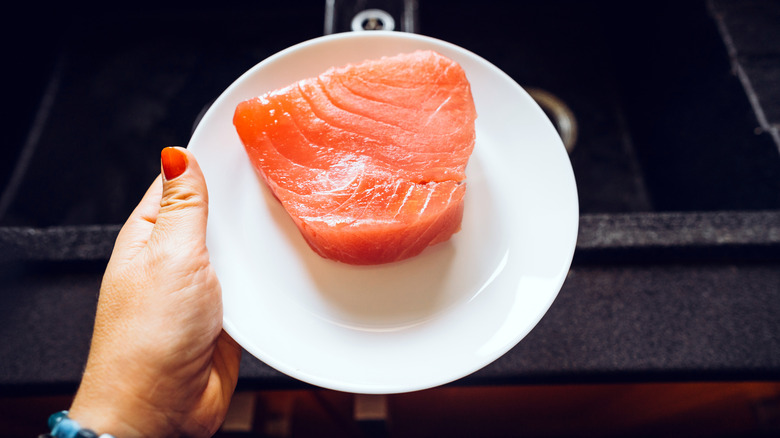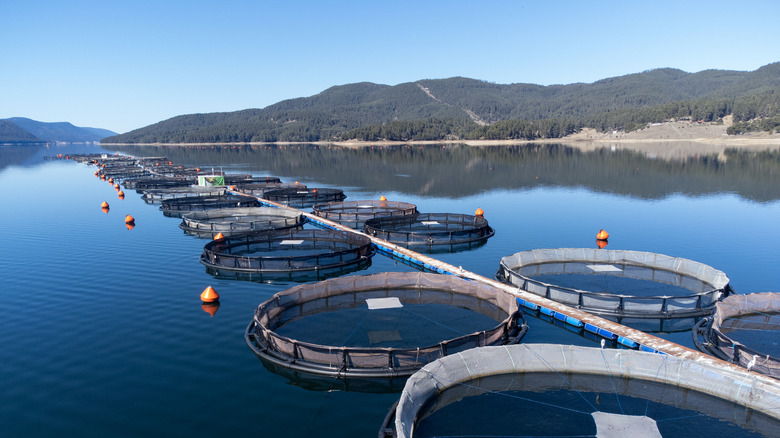Why You Should Give Farmed Salmon Another Shot
Farmed salmon has had a rough PR run. We've seen some unsavory news articles describing crowded pens, sea lice outbreaks, environmental damage, and fish dyed pink to mimic their wild cousins. Even the beloved discount supermarket Aldi had its own farmed salmon scandal. The image stuck: Industrial farming sucks, even when it's in the water. But that perception is outdated. Advances in aquaculture, new sustainability standards, and an evolving seafood industry mean it's time to give farmed salmon another shot.
Let's be clear: Wild salmon is delicious and ecologically important. But it's also increasingly rare, expensive, and seasonal. Overfishing is also a big problem when it comes to wild salmon. Farmed salmon, on the other hand, is available year-round and represents the majority of salmon eaten globally. Farmed salmon now accounts for 70% of the global market. Dismissing it entirely puts unnecessary pressure on wild stocks and overlooks how far fish farming has come. While there are some differences between wild and farmed salmon, both are healthy to eat and better for you (and the earth) than a fast food burger.
Modern aquaculture is much better than what it used to be. In recent years, many salmon farms have adopted improved practices that prioritize water quality, fish health, and reduced environmental impact. Countries like Norway, Scotland, Canada, and even parts of the U.S. have implemented stricter regulations and third-party certifications that set higher bars for sustainability and traceability.
Responsible aquaculture is becoming mainstream
Of course, farmed salmon can't quite beat wild salmon nutritionally, but it comes pretty damn close. Farmed salmon is rich in omega-3 fatty acids, protein, and B vitamins, just like its wild counterpart. Because farmed salmon are fed special diets optimized for growth, their extra fattiness can sometimes offer more omega-3s per serving. The notion that they're nutritionally inferior is outdated.
But most importantly, how does it taste? On the culinary side, farmed salmon offers consistency and flavor. It's extremely fatty, forgiving, and holds up well to a variety of cooking methods, no matter what recipes you use to showcase nature's perfect fish. It's a weeknight workhorse that doesn't break the bank or require a trip to a specialty fishmonger. That accessibility matters if we want more people eating healthy, sustainable seafood instead of red meat or ultra-processed foods.
That said, not all farmed salmon is created equal. It's important to know your source, ask questions, and look at your labels when buying salmon. Check for third-party certifications like ASC (Aquaculture Stewardship Council) or BAP (Best Aquaculture Practices) when shopping. Some major grocery store brands are also making serious efforts; Whole Foods and Costco frequently carry BAP- or ASC-certified farmed Atlantic salmon. Farmed salmon isn't perfect, but it's evolving. And with a little awareness, it can be part of an ethical, delicious, and sustainable diet.

